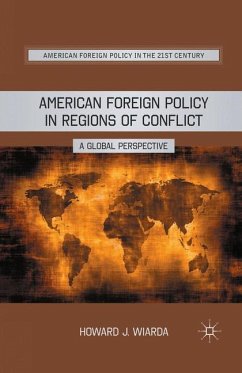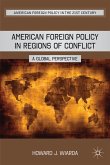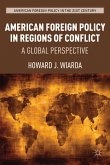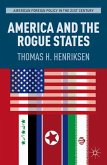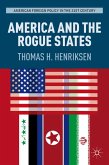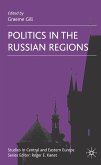America s regional foreign policy priorities are shifting, toward Asia, the Middle East, Latin America, and Africa, and away from Europe and Russia. Wiarda examines these changes and the reasons for them in each of these regional areas in this comprehensive work on global perspective on American foreign policy. Designed as a text for introductory international relations, foreign policy, comparative politics, and world politics courses, this book succeeds in integrating these often separate subfields and shows how the study of comparative politics can enlighten foreign policy.
"Wiarda has developed a well-crafted text on the regions of the world and the challenges faced by the United States in those regions. He has a long and distinguished record of achievement in the area of U.S. foreign policy and comparative politics, and his experience as a Washington insider has given him a wealth of knowledge about how the foreign policy process works here and abroad. Readers of this text will certainly gain both a thorough understanding of the regions of the world, while at the same time examining how the United States has responded to and should respond to the issues that make up these critical foreign policy relationships." - Michael J. Kryzanek, Executive Director, Center for International Engagement, Bridgewater State University
"Makes a compelling case for the study of individual countries and regions by scholars of American foreign policy. By partly attributing US foreign policy failures to political scientists who he claims have replaced substantive knowledge of the world with quantitative modeling, Wiarda's newest book does not shy away from controversy. In fact, by calling on scholars of International Relations to engage in policy-relevant research he hopes scholars with knowledge of the world's regions will influence foreign policy decisions in Washington. In true Wiarda style, the book is also written to be very accessible and will be of interest to students of all levels." - Lana Wylie, Associate Professor, Department of Political Science, McMaster University
"Makes a compelling case for the study of individual countries and regions by scholars of American foreign policy. By partly attributing US foreign policy failures to political scientists who he claims have replaced substantive knowledge of the world with quantitative modeling, Wiarda's newest book does not shy away from controversy. In fact, by calling on scholars of International Relations to engage in policy-relevant research he hopes scholars with knowledge of the world's regions will influence foreign policy decisions in Washington. In true Wiarda style, the book is also written to be very accessible and will be of interest to students of all levels." - Lana Wylie, Associate Professor, Department of Political Science, McMaster University

